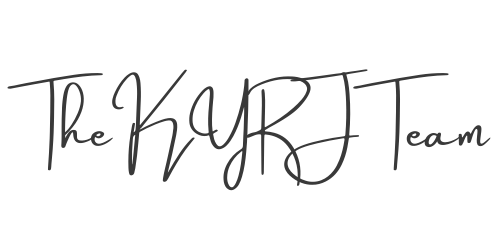DISCLAIMER: The content of this website, by its very nature, is general, whereas each user’s situation is unique. Therefore, please note the information contained within this website is for informational purposes only. All efforts have been executed to present accurate, up to date, and reliable, complete information. No warranties of any kind are declared or implied. Users of this website acknowledge that the Know Yu Rights Jamaica website is not engaging in the rendering of legal, financial or professional advice.
Please read our Privacy Policy & Terms of Use for further information.
Every worker deserves to feel safe while performing their duties. This principle holds true in Jamaica, where the law guarantees specific rights regarding your safety in the workplace.
Jamaica’s labour framework is built on the foundation of several laws, but the Occupational Safety and Health Act (2017) plays a crucial role in safeguarding your well-being at work. This act outlines:
- The scope of protection: OSHA covers most workplaces in Jamaica, including factories, construction sites, offices, and even farms.
- Your rights to information, training, and consultation: The law mandates that employers inform you about potential hazards in your workplace, provide you with safety training, and consult with you on matters related to safety procedures and improvements.
- Employer’s responsibility to create a safe work environment: The central tenet of the act is the employer’s duty to provide a safe work environment. This includes eliminating or minimizing hazards, providing necessary personal protective equipment (PPE), and ensuring safe work practices are followed.
What This Means for You:
Knowing your rights under the Occupational Safety and Health Act empowers you to:
- Request information about potential hazards: Don’t hesitate to ask your employer for information regarding any existing or potential dangers in your workplace.
- Seek training: You have the right to receive proper training on safety procedures and how to use any necessary equipment.
- Participate in discussions about safety: Your voice matters! The law encourages employers to consult with employees on implementing and improving safety measures.
- Refuse unsafe work: If you believe a situation presents an imminent threat to your safety, you have the right to refuse to work in that condition without fear of retaliation.
Common Workplace Hazards in Jamaica
The Jamaican workplace, while diverse across various sectors, carries common threads of potential danger. Understanding these underlying risks empowers you to stay vigilant and contribute to a safer work environment.
Common Hazards:
- Physical Hazards: These are often the most readily identifiable threats. Slips, trips, and falls remain a major concern due to uneven surfaces, poor lighting, and improper use of equipment. Improper lifting techniques and repetitive motions can lead to musculoskeletal disorders (MSDs), causing pain and discomfort. Additionally, exposure to excessive noise and vibration can contribute to hearing loss and other health problems.
- Chemical Hazards: Working with or around hazardous materials, such as cleaning products, pesticides, or industrial chemicals, poses the risk of exposure. This can happen through inhalation, skin contact, or ingestion, potentially leading to respiratory problems, skin irritation, or even poisoning. Inadequate ventilation can further exacerbate these risks by allowing harmful fumes and dust to accumulate in the air.
- Biological Hazards: The presence of infectious agents, insects, and pests can pose a significant biological threat. This includes exposure to bacteria, viruses, and parasites, which can cause various illnesses. Additionally, improper sanitation and hygiene practices can increase the risk of infection and disease transmission.
- Ergonomic Hazards: Poor workstation design, awkward postures, and repetitive tasks can lead to ergonomic hazards. These can manifest as MSDs like carpal tunnel syndrome or back pain, impacting both worker comfort and productivity.
Industry-Specific Risks:
Beyond these common hazards, certain industries present additional specific risks:
- Tourism: Workers in tourism may face long hours standing and serving, leading to MSDs. They may also be exposed to harmful chemicals in cleaning products and face potential accidents while engaging in water activities, like boating or swimming.
- Agriculture: Farmers and agricultural workers are exposed to pesticides, herbicides, and dust, posing respiratory and skin irritation risks. Additionally, operating machinery and tools can lead to injuries, and working outdoors exposes them to potential heat stress.
- Construction: Construction sites pose a multitude of unique risks due to working at heights, falling objects, and exposure to dust and noise. Electrical hazards are also prevalent in this sector, requiring proper safety protocols and equipment.
Importance of Risk Assessments:
Regular risk assessments are crucial in safeguarding the well-being of workers. By systematically identifying potential hazards, including physical, chemical, biological, and ergonomic factors specific to each workplace, employers can implement preventative measures and create a safer working environment for everyone. This proactive approach minimizes the risk of accidents, injuries, and illnesses, promoting a healthy and productive workforce.
Reporting and Responding to Unsafe Conditions
What do you do if you see something unsafe at work? Consider the following guide on how to report unsafe conditions and protect yourself:
1. Spot the Danger: Keep your eyes peeled for potential hazards like slippery floors, faulty equipment, or improper chemical handling.
2. Speak Up: Inform your supervisor or safety representative immediately about the unsafe condition. Be clear and specific about what you saw and the potential risks involved.
3. Document It: If possible, take pictures, videos, or notes to record the unsafe condition and the date you reported it. This documentation can be crucial later on.
4. Seek Further Assistance: If your supervisor or safety representative doesn’t address the issue, don’t be afraid to reach out to the Ministry of Labour and Social Security (MLSS). You can also seek guidance from your trade union representative if you’re a member.
Safety Representatives and Committees:
Some workplaces have designated safety representatives or committees responsible for identifying and addressing safety concerns. These individuals act as a bridge between employees and management in promoting a safe work environment. Don’t hesitate to reach out to them if you have concerns.
Your Protection From Retaliation:
The law protects you from retaliation for raising safety concerns. This means your employer cannot threaten, demote, or fire you simply for reporting unsafe work conditions. If you experience any form of retaliation, remember:
- Document the incident: Keep a record of any instances of retaliation, including dates, times, and witnesses.
- Seek legal advice: Consult a lawyer or legal aid organization specializing in labour law to understand your rights and options.
- Report the retaliation: Inform the Ministry of Labour and Social Security (MLSS) or your trade union representative about the retaliation you faced.
Remember: Your safety matters. By following these steps and understanding your rights, you can play a crucial role in creating a safer and healthier work environment for yourself and your colleagues.
Your Safety In The Workplace
The Jamaica Occupational Safety and Health Act (2017) is more than just a law; it’s a powerful tool to help you achieve your right to a safe and healthy work environment.
By knowing your rights under this Act, you can:
- Request information about potential hazards in your workplace.
- Seek training on safety procedures and equipment usage.
- Participate in discussions and contribute to improving safety protocols.
- Refuse unsafe work without fear of retaliation.
Remember, you, the employee, are not solely responsible for creating a safe workplace. The Act places the responsibility on your employer to provide a safe environment and take necessary measures to minimize risks.
Don’t be afraid to speak up and report any unsafe conditions you encounter. By understanding your rights, utilizing available resources, and collaborating with your employer and fellow workers, you can collectively contribute to a safer and healthier work environment for everyone in Jamaica.

